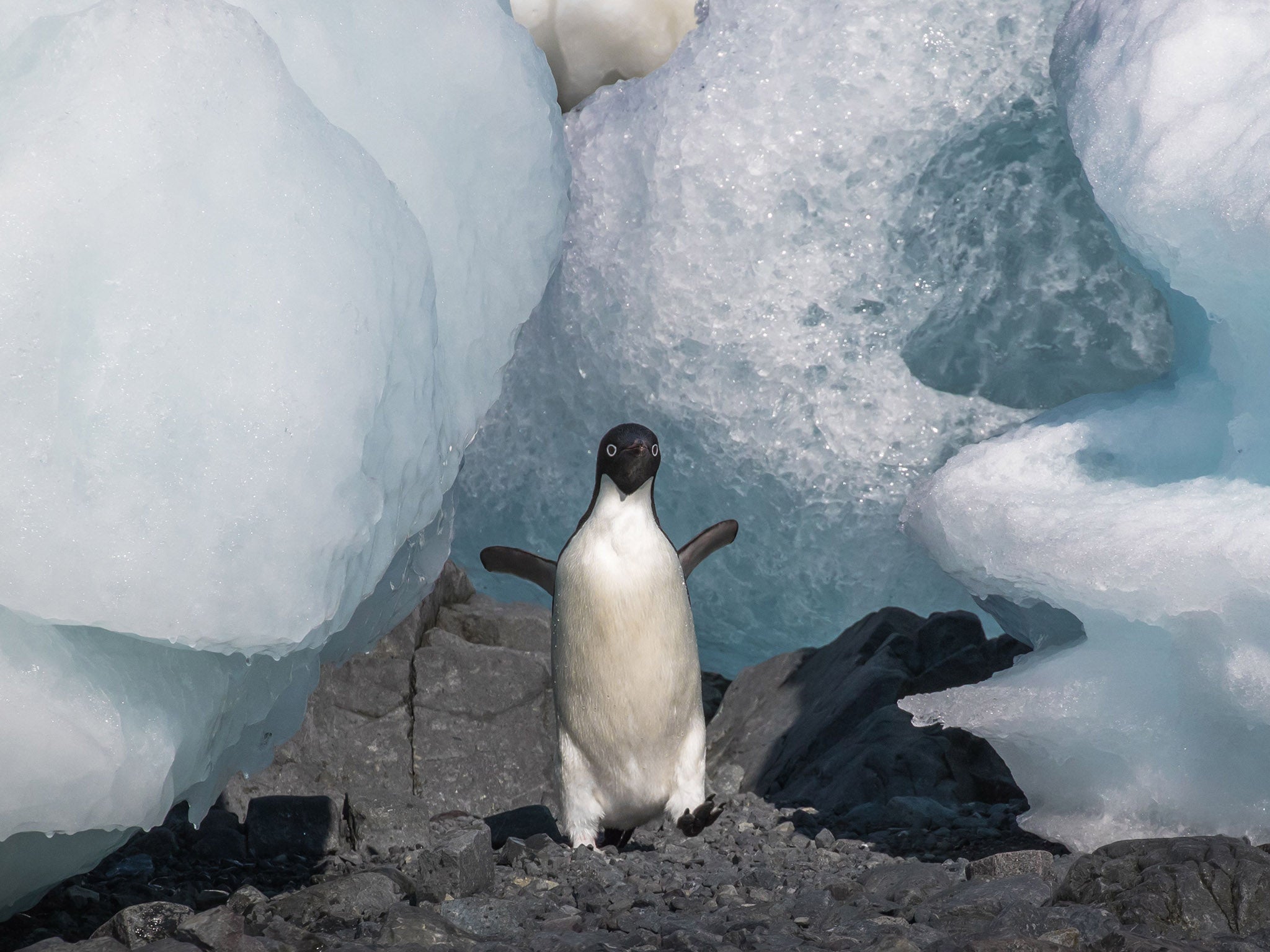Penguin colony faces annihilation as huge iceberg blocks sea
Scientists fear Adélie penguin colony could face extinction within the next two decades

Your support helps us to tell the story
From reproductive rights to climate change to Big Tech, The Independent is on the ground when the story is developing. Whether it's investigating the financials of Elon Musk's pro-Trump PAC or producing our latest documentary, 'The A Word', which shines a light on the American women fighting for reproductive rights, we know how important it is to parse out the facts from the messaging.
At such a critical moment in US history, we need reporters on the ground. Your donation allows us to keep sending journalists to speak to both sides of the story.
The Independent is trusted by Americans across the entire political spectrum. And unlike many other quality news outlets, we choose not to lock Americans out of our reporting and analysis with paywalls. We believe quality journalism should be available to everyone, paid for by those who can afford it.
Your support makes all the difference.A colony of Adélie penguins faces extinction after a colossal iceberg collided with their home - preventing them from feeding in the sea.
The iceberg, called B09B, which is the size of a small country and hit the area of Commonwealth Bay they inhabit in the Antarctic in 2011.
Researchers from the University of New South Wales counted the penguins at Cape Denison, a rocky point located at the head of the bay in 2013-2014, and published their conclusions in the journal Antarctic Science.
They were alarmed to find there were only 5,520 pairs of the penguin, compared to an estimated 100,000 birds in the area a century ago.
The team also found many of the remaining penguins were "docile" and "not hatching eggs".
The study noted: "A colony on the east cost of the on the eastern fringe of Commonwealth Bay, just 8km, from the fast ice edge was thriving, indicating the arrival of B09B and fast ice expansion."
The team observed the effects of the iceberg and found it had caused sea ice to expand by up to 60 kilometers, meaning the penguin colony now have to travel almost 120 kilometers to get to the ice edge to feed in the sea.
Whether the birds are finding cracks in the ice or making their way to the edge of the ice, the team said they saw hundreds of abandoned eggs and frozen chick carcasses on the ground, according to Russia Today.
Researchers are not sure how long the iceberg will remain, but if the situation stays unaltered they fear the Adélie colony in the bay will disappear within two decades.
Join our commenting forum
Join thought-provoking conversations, follow other Independent readers and see their replies
Comments